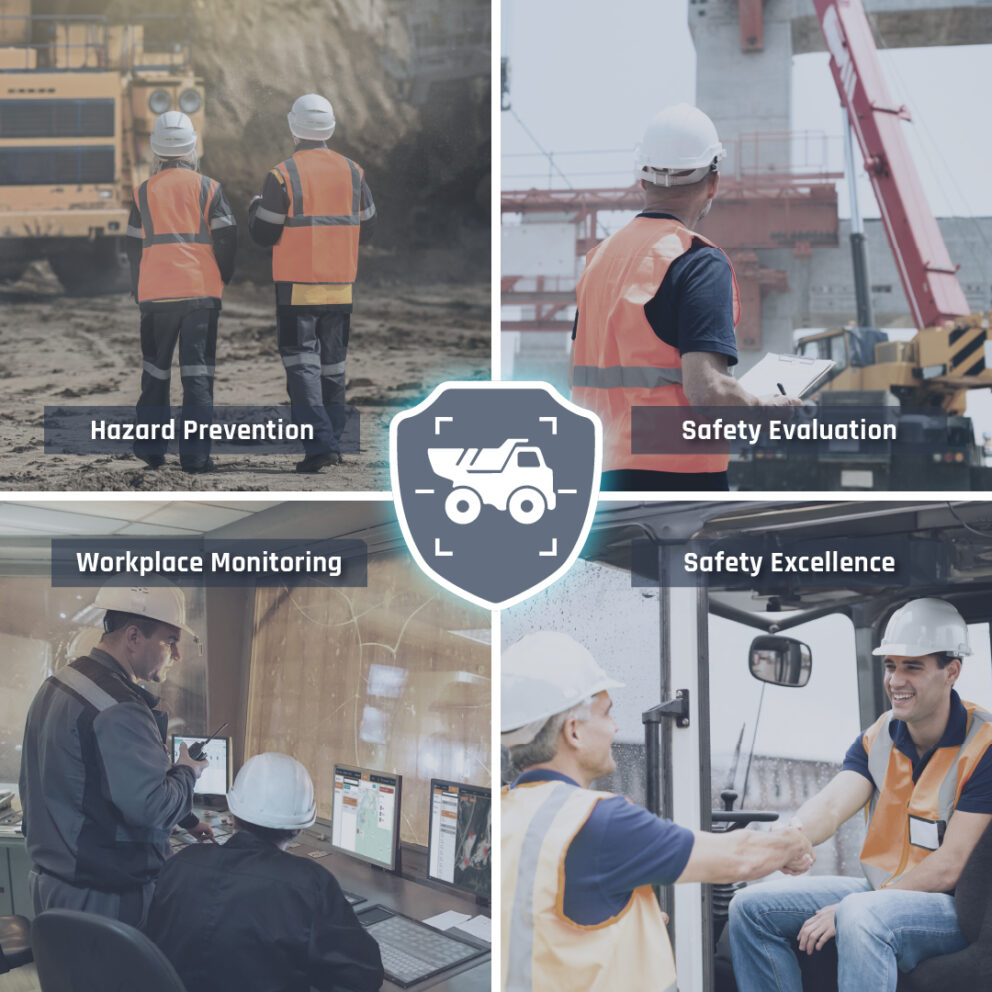Safety in heavy equipment operations is a critical concern across various industries. For example, MSHA statistics reveal that struck-by incidents are a major hazard, with 1,207 out of 3,957 total accidents reported from 2020 to 2024. These incidents account for one-third of all accidents, underscoring the urgent need for enhanced safety measures in the industry.
Why Safety is Crucial in Industries Operating Heavy Equipment

Prioritizing safety in heavy equipment operations is essential for several reasons:
Economic Costs:Accidents can lead to significant expenses, including productivity losses due to downtime, medical costs, and legal fees. Additionally, companies may face increased insurance premiums and potential fines from regulatory bodies if compliance is not met.
Financial Benefits of Safety Measures:Investing in safety measures can help avoid the substantial financial burdens associated with accidents. By reducing the risk of incidents, businesses can ensure smoother operations and enhanced productivity.
Reputation Management:Accidents and safety violations can severely impact a company’s reputation, leading to the loss of business and trust from clients and partners. Maintaining a strong safety record is crucial for preserving and enhancing business relationships.
Regulatory Compliance:Adhering to safety regulations is mandatory to prevent legal consequences. Compliance helps avoid fines and other penalties from regulatory bodies, ensuring that the company operates within legal standards.
Keeping Your Equipment Safe at Work
Ensuring the safety of heavy equipment at work is a multifaceted approach that involves regular maintenance, comprehensive training, and the utilization of advanced safety features. These measures are essential in preventing accidents and maintaining a safe working environment.
Maintenance:Regular maintenance and inspections are essential for keeping heavy equipment safe for instance, conducting monthly checks on bulldozers can identify hydraulic system issues before they fail during operation. Ensuring that cranes receive bi-weekly inspections helps detect and repair worn-out cables or gears, preventing catastrophic failures. Proper maintenance not only ensures that machinery operates efficiently but also significantly reduces the risk of malfunctions that can lead to accidents.
Training:Proper training for operators and maintenance staff is critical. For example, training forklift operators on how to handle loads properly and navigate tight spaces can prevent tip-overs and collisions. Similarly, educating maintenance staff on how to conduct thorough inspections and troubleshoot common issues with excavators can minimize downtime and enhance safety. Training should cover the operation of the machinery, safety protocols and emergency procedures to ensure employees are prepared to respond effectively to emergencies.
Keeping Your Equipment Safe at Work
In 2022, CPWR (The Center for Construction Research and Training)208 construction workers were surveyed. The result revealed that 36% of struck-by injuries were caused by working around heavy equipment or vehicles. This issue is not confined to construction. Industries such as manufacturing and agriculture face similar hazards, including rollovers, collisions, and equipment malfunctions. These risks highlight the critical need for comprehensive safety systems across all industries to protect workers and prevent accidents.
VIA: Your Trusted Partner in Heavy Equipment Safety
At VIA, we understand the paramount importance of safety in heavy equipment operations. Our aftermarket camera and sensor fusion safety system is designed to detect hazards around the vehicle. By using our innovative safety solution, we help prevent accidents from happening and protect your workers and operations.
Book a free consultation now to learn more
